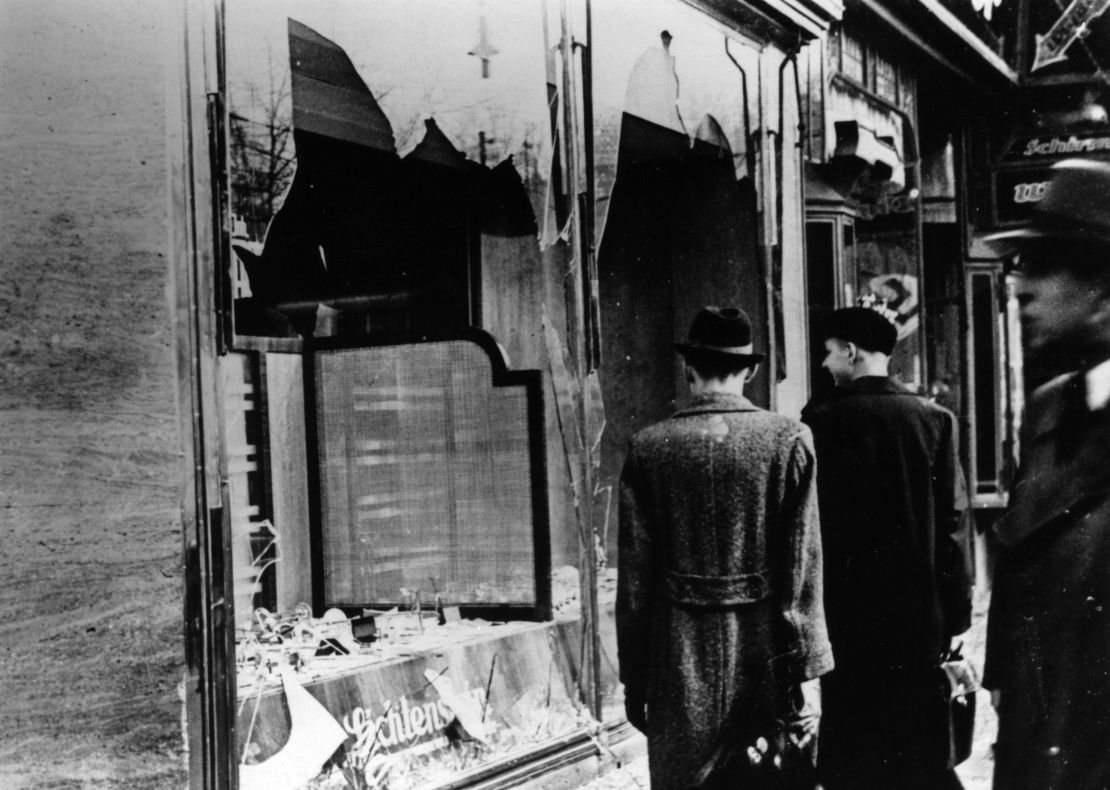Anti-Semitic acts in France increased by 69% in the first nine months of 2018, Prime Minister Edouard Philippe said Friday.
In a statement released on the 80th anniversary of Kristallnacht – a pogrom carried out by the Nazis against Germany’s Jewish community in 1938 – Philippe announced a new task force to improve education and deal with anti-Semitism in schools.
Kristallnacht led to nearly 100 Jews being killed, 30,000 men arrested, over 1,000 synagogues burnt and more than 7,000 Jewish businesses destroyed or damaged.
“It was 80 years ago, to the day. On November 9, 1938, the Nazis inflicted on Germany a night of systematic violence, against synagogues, Jewish-owned shops, and Jewish homes,” Philippe wrote in a post on Facebook.
“The ominous sound of broken windows gave its name to this terrible episode in history: the Night of Broken Glass.
“Why remember, in 2018, such a painful memory?

“Because we are very far from having finished with anti-Semitism. I have just read the most recent figures in relation to the rise of anti-Semitic acts in our country. They cannot be ignored. While they were declining over the past two years, these acts have now increased by more than 69% in the first nine months of 2018.”
After a record year in 2015, anti-Semitic acts fell sharply, by 58%, in 2016. They continued to fall in 2017, decreasing by 7%, though this masked an increase in violent acts targeting Jews.
The nature of anti-Semitic acts has changed drastically in recent years, manifesting itself in violence that has seen 11 people since killed since 2006.
In 2015, a gunman killed four people in a kosher supermarket in Paris as a horrified world watched on television. Three years earlier, four people including three young children were gunned down in an attack on a Jewish school in Toulouse, shocking the country.
This year, hundreds took to the streets to protest after Mireille Knoll, an 85-year-old French Holocaust survivor, was murdered in her apartment in what French authorities have described as an anti-Semitic hate crime.
Philippe says the government will now step up its fight against anti-Semitism, racism and homophobia, calling on every French citizen to “mobilize for life together, for the identity of France and for the values of the Republic.”

Philippe announced the mobilization of a national team tasked with educating children in schools across the country on the dangers of anti-Semitism.
He also promised to make tackling online hate speech a national priority, as well as introducing an anti-racism prize named after Ilan Halimi, a 23-year-old tortured and murdered in an anti-Semitic attack in 2006.
There are also plans for an online complaint procedure to allow users to register attacks with authorities.
Speaking to CNN, Francis Kalifat, president of CRIF, the umbrella body for the French Jewish community, said it was time for action rather than more plans.
“Our first observation is that violent acts are a daily occurrence and they have existed for a long time,” Kalifat said.
“We want the fight against anti-Semitism to be treated differently so that it is no longer treated with other hateful acts. Because all hateful acts do not spring from the same place.
“Our second observation is that we keep going from ‘government plan’ to ‘government plan’ but the figures show that this succession of ‘plans’ doesn’t give results. It’s time to stop the ‘plans’ and take action.”
Philippe’s announcement comes a day after the French government backed down over apparent plans to pay tribute to Marshal Philippe Pétain -- who collaborated with the Nazis in the deportation of Jews from France during World War II – as part of commemorations to mark the 100th anniversary of the end of World War I.
This story has been updated to correct the name of the 85-year-old Holocaust survivor who was murdered.
CNN’s Saskya Vandoorne reported from France. James Masters wrote from London. Anne-Dominique Correa contributed to this report.
